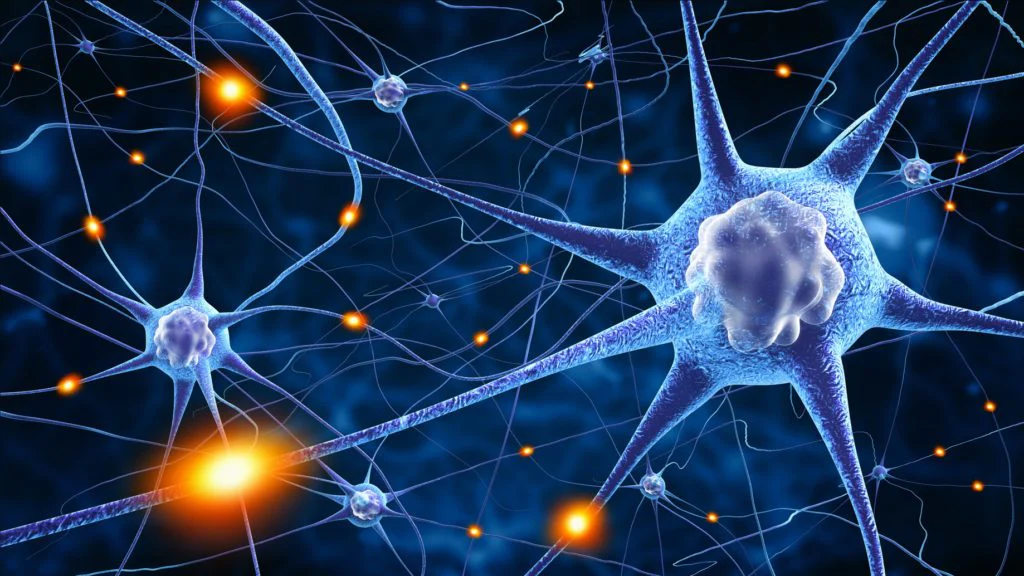All About Neurotransmitters

Neurotransmitters are chemical messengers that transmit signals between neurons. Their job is to carry “messages” from one neuron to the next neuron in the brain. They play a crucial role in the communication and functioning of the nervous system in human beings. Neurotransmitters are diverse in their structure and function, and different neurotransmitters are associated with different physiological and psychological processes. They play a critical role in regulating various functions such as: mood, memory, cognition, motor control, and sensory processing. Imbalances in neurotransmitter systems can contribute to neurological and psychological disorders. There are at least 100 known neurotransmitters in the brain, and many scientists suspect there are more to be discovered.
Most common neurotransmitters
Dopamine
Dopamine is involved in the brain’s reward system and plays a crucial role in reward-motivated behavior, motivation, pleasure, and motor control. It is associated with feelings of pleasure and reinforcement. Having the right amount of dopamine is important both for the body and brain. Having low levels of dopamine can make someone feel less motivated and excited about things. Low level of dopamine is common in depression and psychosis. On the other hand, having too much dopamine is linked to poor impulse control, addiction and aggression. There are serval ways to support healthy dopamine levels in the brain including: getting regular exercise, socialize with friends and family, and setting goals.
Glutamate:
Glutamate is the primary excitatory neurotransmitter in the central nervous system. It is involved in synaptic plasticity, learning, memory, and various cognitive functions. Glutamate plays a major role in shaping and learning. Too little glutamate has been linked to low energy, trouble with concentrating, and insomnia. Too much glutamate can cause brain cell damage and can result in neurodegenerative diseases. Diet and limiting processed foods such as monosodium glutamate ( MSG) may help support optimal glutamate functioning in the brain.
Serotonin:
Serotonin is involved in regulating mood, appetite, and sleep. It is often referred to as the “feel-good” neurotransmitter and is targeted by many antidepressant medications. Low levels of serotonin might be connected to problems such as: depression, anxiety, sleep issues, panic, or other mood disorders. Too much serotonin usually happens as a result of medication and is known as serotonin syndrome. Symptoms include: shivering, heavy sweating, confusion, restlessness, high blood pressure, muscle twitches, or seizures. There are serval ways to support healthy serotonin levels in the brain including: getting regular exercise, spending time in the sunlight, and maintaining a balanced diet.
Norepinephrine:
Norepinephrine, also known as noradrenaline, is involved in the body’s stress response, attention, and arousal. It helps increase alertness and focus. In addition, it plays an important role in the “fight-or-flight response.” It can act as both a hormone and neurotransmitter. If norepinephrine is low, it can lead to various conditions, including: anxiety, depression, ADHD, headaches, memory problems, sleeping problems, and low blood pressure. High levels of norepinephrine are liked to anxiety, jitters, or high blood pressure. Sleep, exercise, caffeine consumption and diet all play a big role in managing healthy norepinephrine levels in the brain and body.
Gamma-aminobutyric acid (GABA):
GABA is the primary inhibitory neurotransmitter in the brain. It plays a crucial role in reducing neuronal excitability and helps regulate anxiety, sleep, and motor control. GABA naturally slow down the brain by blocking specific singles to the central nervous system. Low levels of GABA are connected to most mental health conditions including: depression, anxiety, psychosis, autism, attention related disorders, post-traumatic stress disorder, addiction, and other mood related disorders. Too much GABA may cause an increase in depression, anxiety, or mania. Yoga, meditation, exercise, deep breathing, and diet are researched ways to help maintain a balanced level of GABA in the brain.
There are many neurotransmitters in the brain. Every day, the brain works hard to make sense of the world! If you are interested in learning more, reach out to Mountain Vista Psychology to schedule an appointment!
Schedule a FREE Consultation
We believe in an integrative and holistic approach to help you make the changes you want. Contact us now to schedule an appointment or to request a 20 minute free phone consultation. During this session, you will be invited to share your story and ask any questions you may have.
Recent Articles
Identifying Different Parenting Styles
Much like everything in life, there are differences in the way people parent their children. People often want to know…
Signs Someone You Love May Be Hiding Depression
Depression can be scary for many people. Depression can make individuals feel as though they are losing control over their…
Fighting the Good Fight with Couples Therapy
Tension and conflict are normal and even healthy parts of any relationship. Sometimes, tension and conflict work out by itself.…
What Is Family Therapy?
In any family, it is normal to have a certain level of conflict. In fact, conflict might even be healthy…





